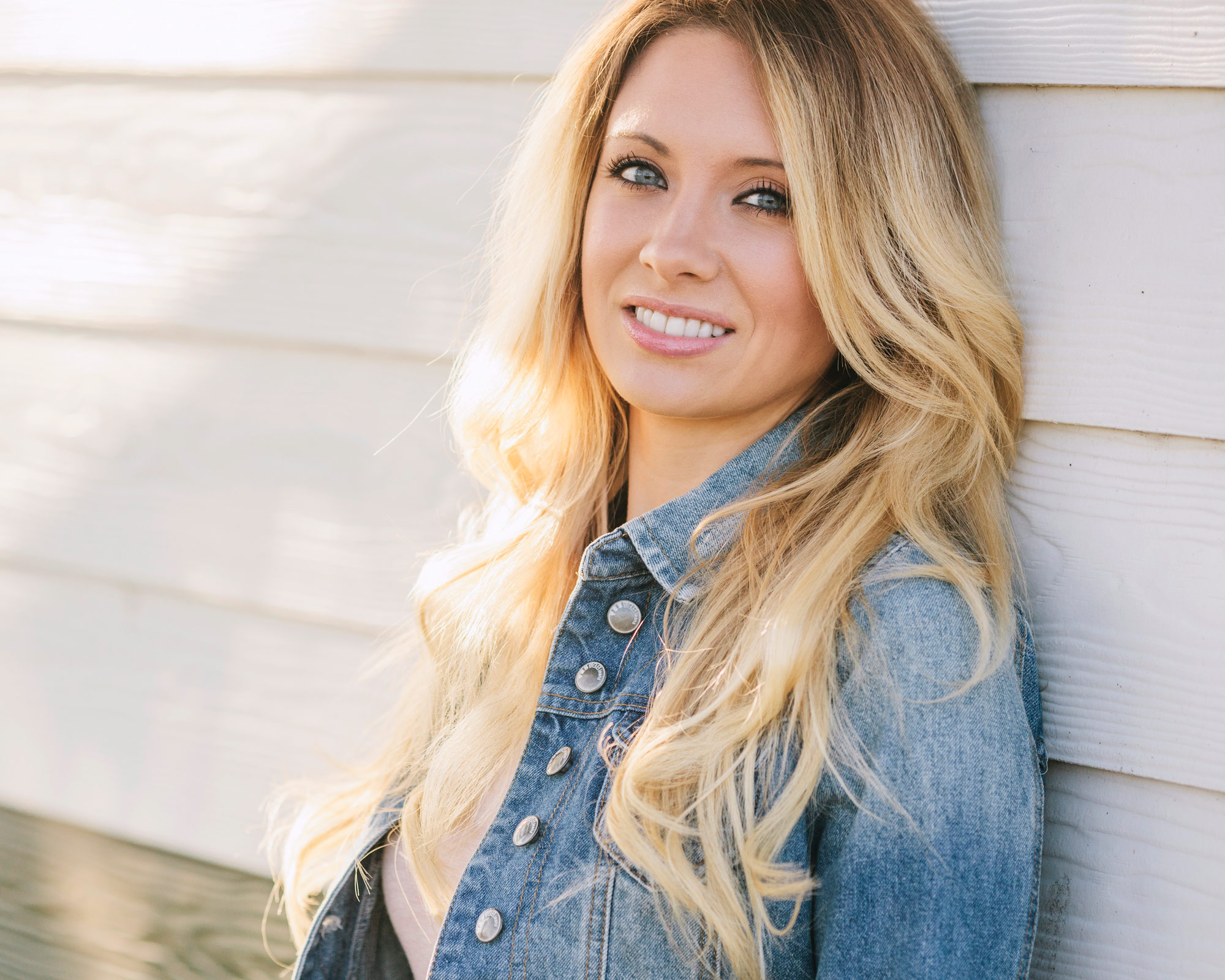
- Interview by Ryan & Tina Essmaker December 27, 2012
- Photo by Craig Williams
Sarah Parmenter
- designer
- developer
Sarah Parmenter is a web designer, speaker, and founder of You Know Who, a small design studio specializing in user interface design for the web, iPhone, and iPad. She began dabbling in the web at age 14 and decided to pursue design full-time at age 19. Sarah regularly contributes to design related websites, has written features for various magazines, and speaks at web design conferences around the world.
Interview
Describe your path to becoming a designer.
It’s actually a funny one. My mom and dad said that from the time I was aware of my surroundings, one of the only things that made me happy was sitting down and drawing on paper with pens and crayons. I mostly drew on the old-fashioned paper with perforated edges—my dad bought me so many boxes of that paper.
As far as what I do now, it all came from having that inner creativity, which sounds a bit cliché in some ways. People say you’re born that way or you’re not and I think I was because at three or four years old, I don’t think I made a conscious decision about what made me happy. My path stemmed from loving to draw and it was a natural progression from there. It also helped that we had a computer at home. We had one of the first Atari systems and one of the first Packard Bell computers, which we thought was amazing because it had a scanner in the keyboard.
Around age 13, I got a copy of Photoshop and that changed things a bit. I used to do a lot of fine art at school, but our school computers weren’t good enough to do any kind of graphic design—they were glorified word processors. I would do my fine art at school and then bring it home and try to recreate it in pirated copies of Photoshop and Illustrator, which is how I learned a lot. I also read and asked for books about Photoshop for Christmas. It was a true digital blend of creativity because I was doing art on paper, but had the curiosity to translate it onto the computer. My art teachers were always really supportive, but never allowed me to submit anything that was digitally made because our school wasn’t inclined in that way and they wanted to be fair.
I think I owe a lot to my dad. He understood the value of technology and was very technology driven. I remember when I was three and he sat me in front of our Atari. He said, “You can’t break this. Write your stories the way you would normally write me a story, but try writing it on the computer instead because I have a feeling that these are going to be big.”
(all laughing)
I was with my dad yesterday and asked him, “What do you think I would’ve done if I hadn’t gone into the web industry?” He said, “You would’ve always done something creative, Sarah, because you were always happiest when you were making stuff and making things look beautiful or nicer than they were before. I reckon you would’ve gone into interior design or window dressing or something like that.”
Is your dad in a tech-related field?
No, he’s just a gadget man. My family has owned a liquor store since before I was born, which has nothing to do with the tech industry. My dad was just a tech freak and saw the value in it. I’m very lucky because I don’t come from a family that has been particularly well off. We’ve been grafters and anything we have, we’ve worked hard for. You know the old English saying of having a silver spoon in your mouth? My family is not like that, so having a computer in the house would have cost my dad a pretty penny.
Did you have an “aha” moment when you knew that design was what you wanted to do?
The “aha” moment came years after I had done a couple of other things. At about age 14, I started to learn HTML. I had my own Geocities site and they had an editor that was really clunky. On dial-up, it cost me the equivalent of a cent a minute, so it was quicker to learn the HTML and then put the whole lot in than it was to use their register. I taught myself from a few online sources and books. I remember one night when I got so frustrated with it that I punched the keyboard. Then I asked myself, “Why am I getting in such a pickle over this? This isn’t what I’m meant to be doing, but I’m getting an immense amount of satisfaction out of it.” That’s when I wondered if I could do it as a job.
I had persevered for a year and a half doing something that was not on most girls’ radars back then. I decided to stick with it because, at that point, I had already invested time in it. The funny thing is that I started off coding, but didn’t blend design with coding until much later. About a year into it, I realized I could use Photoshop to create graphic elements to put on a website. That was when I thought, “Maybe I can do this for a living.”
“…things might have felt like big risks, but looking back now, perhaps I have a different perspective of what big losses are. When you lose someone close to you, you re-evaluate those things.”
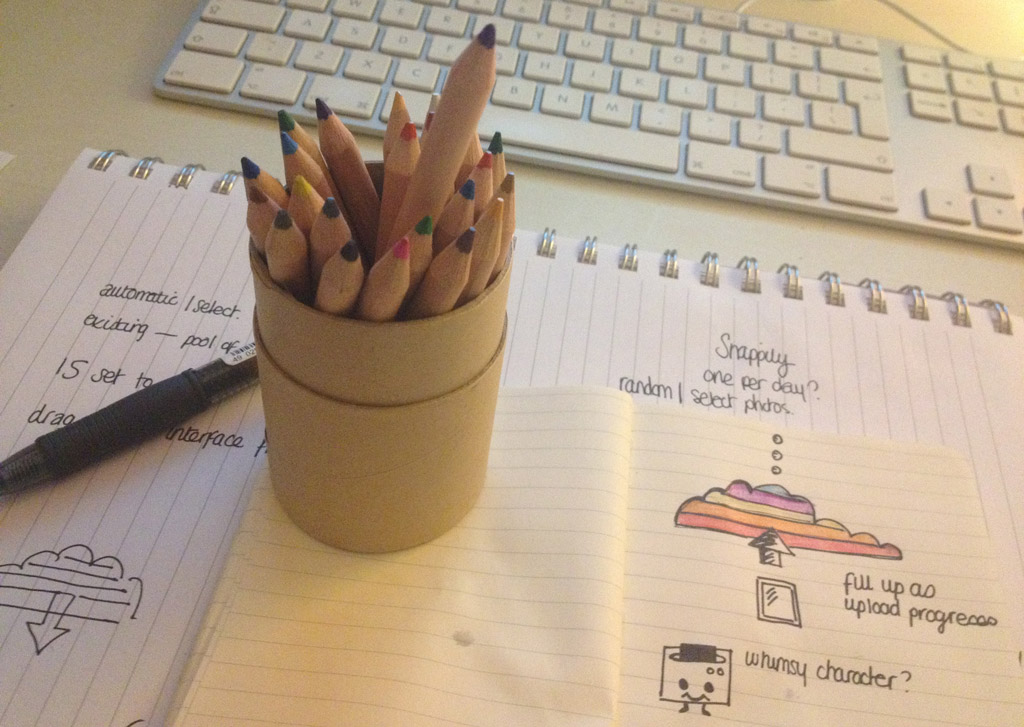
Did you go to university?
No, I didn’t. I was actually doing acting at the time. I made it to one of the last candidates for two roles in two major English shows. Both were about football, which was a bit strange because I thought I must have had that stereotypical look of a footballer’s girlfriend. I had been told by the network that it was a done deal and that I would get the roles. When I got a call from both saying, “No, you didn’t get the roles. These other two girls have beaten you,” it sent me into a bit of a downward spiral and I ended up going back to web work as my safe ground.
I hadn’t gone to university because I was too embedded in acting at that point and thought that was the way I would go. After that crash happened, it didn’t occur to me to go to university; instead, I just continued with self-learning. In a sense, I was lucky because I was so young and naive. On my blog, I started to write about everything I was doing wrong and, in a nice way, that’s carried me through because that’s what I’m known for now—being honest and not being afraid to hold my hands up and say, “I have no idea, but I’m getting there.”
Did you start your studio, You Know Who, when you left acting?
I started my business when I was 19, which was a year before the acting crash happened. I was working in casting for television and found that I could make more money doing website edits for my boss. I thought, “If you’ll pay me money to do this, I wonder if other people will pay me to do this?” But then the acting thing happened and web work took a backseat for about six months. After that, I shelved acting because, quite frankly, I’m not a strong enough person to keep dealing with the rejection. It was then that I wholeheartedly got back into the web industry.
Have you had any mentors along the way?
Yes, and this is where it gets complicated—my mom’s best friend’s sister’s brother (laughing) is from Australia and used to come stay with us for a month or two at a time. He had a successful web design business and would sit in the kitchen working in Dreamweaver. Because I was already interested in the web, it was great. We used to have these late-night geek sessions at my mom’s kitchen table and he would explain things to me and help me really quickly iron out the wrinkles around things I didn’t understand. He was also an insomniac, so even when he was back in Australia I’d ping him on MSN Messenger and say, “Roger, I don’t know how to do this. What have I done?” and he’d say, “You’ve missed a bracket here.” He’s the only mentor I’ve had, although there have been a lot of kind, helpful people in forums, which I think go completely unrecognized in the industry.
Has there been a point in your life when you took a big risk to move forward?
In some ways, I would say no. At the time, things might have felt like big risks, but looking back now, perhaps I have a different perspective of what big losses are. When you lose someone close to you, you re-evaluate those things.
I remember writing the check for my first office, which was quite large and in the posh part of where we lived. The landlord wanted three months rent in advance, which seemed like a fortune to me. I remember writing the check—my hand was shaking and I questioned whether it was a good idea to sign myself up for 600 pounds a month for the next year and a half. That seemed like a big risk at the time, but I couldn’t keep taking clients out for coffee or telling them, “Yes, you can come around for a meeting, but mind my mom and dad in the front room.”
(all laughing)
Other than that, I’ve always been a very calculated risk-taker. There are others in the industry who I look at and admire. For example, Andrew Wilkinson and I started our businesses around the same time, but he’s always been fearless. He’s an aggressive hirer and I’m the opposite. We used to speak a lot and he’d tell me, “You need to hire someone,” and I’d say, “I know, but I’m juggling all the balls right now.” He’d reply with, “We’ve just taken on our 27th hire.” Brilliant!
Looking back, I wish I’d been a little bit more fearless. It makes me wonder what I would have now if I had done that. Instead, I’ve always been very calculated, which I think is close to my dad’s style of being more sensible when it comes to business. I wish I would have thrown caution to the wind a little more—that’s my only regret. Otherwise, I’ve been really lucky.
“Looking back, I wish I’d been a little bit more fearless…I wish I would have thrown caution to the wind a little more…”
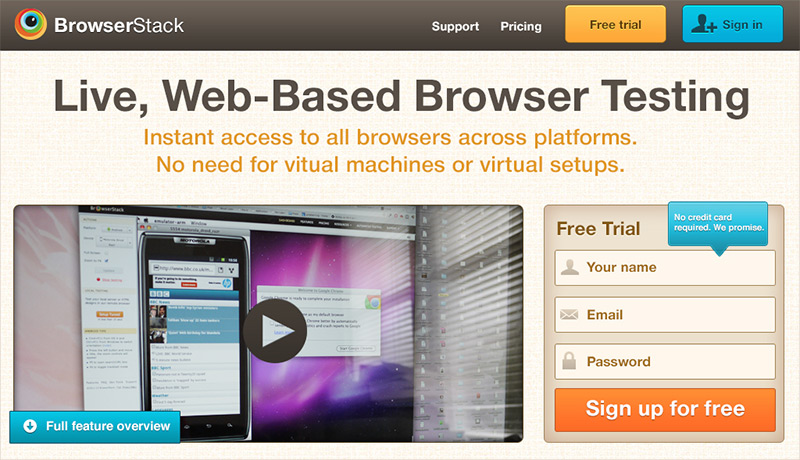
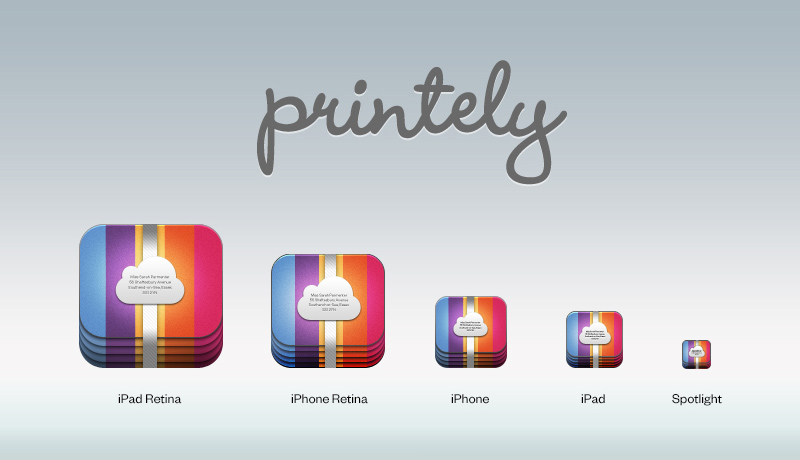
Are your family and friends supportive of what you do?
Massively, but in the most hilarious way—they haven’t got a clue what I do. My mom and dad were always immensely supportive. I recently read through my mom’s Twitter account and it was just full of messages of support for conferences and various things I would go to.
My friends are also great. I think if they all came and spent a day in the office with me, they’d say, “Oh, you code? You do that ‘boy’ thing?” I don’t think they’re quite sure what I do, but they know it’s in a certain industry and they know that if they have a computer problem, they can come to me. It’s that kind of relationship that you have with friends—“Oh, Sarah’s the Mac girl. Ring Sarah.”
Last year, I took my best friend to a mini-conference so she could see what it was all about. This lady turned to her and said, “I do digital. What do you do?” and even though she’s actually a politics teacher, my friend responded, “Oh…me too.” She said to me, “Everyone is so friendly and lovely in your industry and I didn’t know that people looked up to you.” I don’t know what I’ve done to deserve it, but everyone is really supportive of each other and there isn’t that typical competitiveness.
Do you feel a responsibility to contribute to something bigger than yourself?
Yeah, I do. I’ve been thinking about what I can do. Although I don’t advertise free services on my website, I do try to offer services to companies I’ve been involved with for a while.
There is a charity here that picks up and shelters dogs, cats, and other animals. It runs on donations and the staff are great about publicly sharing how donations are being used. I looked at their website and, oh my goodness, it didn’t work. I have plans to redo the site in ExpressionEngine so they can actually update it.
Also, I’ve teamed up with a friend to do an app to help the homeless, which is something I feel quite strongly about. My mom always instilled in me that if I saw someone and wanted to help, I should find a way to do so. The app we’re doing is based on geolocation so that if you want to help, but don’t feel comfortable doing so, the app will locate the nearest homeless shelter so you can give in a safe way that will still make an impact. I like making contributions to stuff like that where I feel like it will actually help.
That’s awesome. Will the app be accessible to everyone?
It’ll be a free app that you can download. My friend is based in San Francisco and is going to set up a nonprofit organization as the holding account for the various shelter organizations. Once a month, the shelters will get the money donated to them. None of us are making a penny off of it; it’s just something close to our hearts. We’re going to get that built over Christmas and hopefully have it out next year.
“I’m satisfied to a point, but I’m always hungry for more, which I think is the perfect way to be. The moment you feel like you’ve learned everything—that’s a dangerous place to be.”
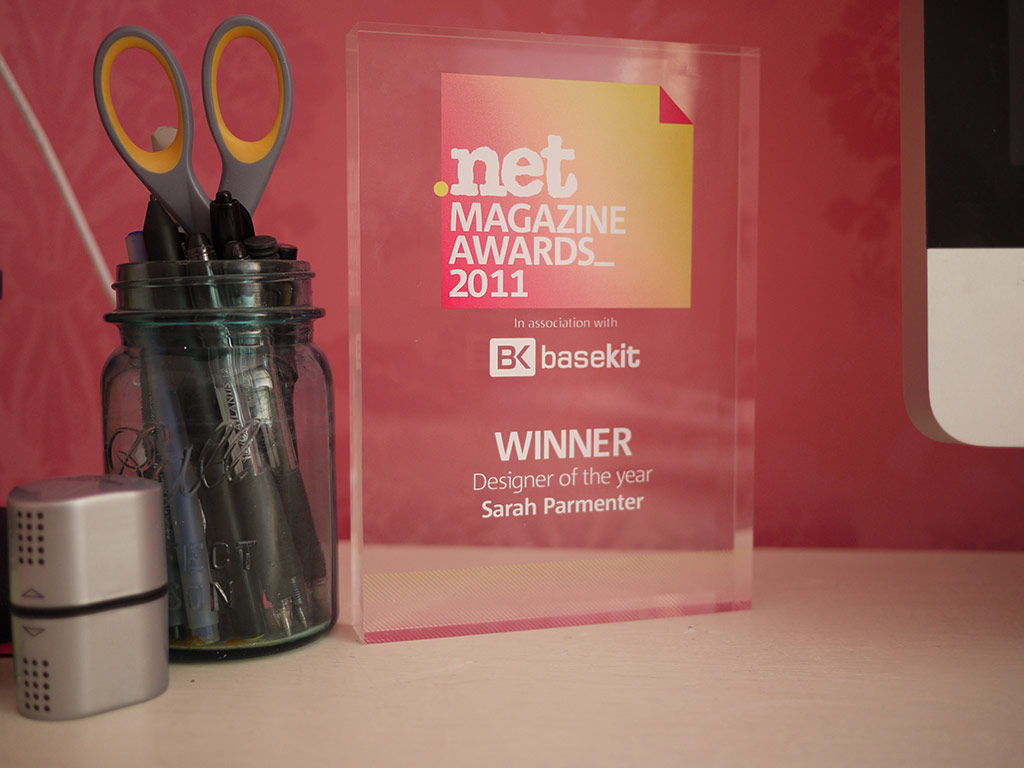
Are you satisfied creatively?
Yes, I am. I think my satisfaction comes from being able to have the skills to do anything I want creatively. At the moment, I feel like I have enough skills to build what I want, but I get an awful lot out of learning new things as well. I’m satisfied to a point, but I’m always hungry for more, which I think is the perfect way to be. The moment you feel like you’ve learned everything—that’s a dangerous place to be. There are always new things to learn.
Is there anything you’d like to try in 5 to 10 years?
I would really love to learn Ruby or Cocoa. The problem is that I find those languages to be very mathematical and I haven’t got a mathematical brain—my brain thinks in colors and typography—so I find that to be a struggle. There’s part of me that would love to be able to have an idea for an app and build it as well.
I’ve been learning calligraphy lately, if that counts. In the month I had off after my mom passed, I didn’t notice it, but I had started reverting to when I was a little girl and found happiness in drawing. Sitting on the couch, sketching in a big notebook was the only thing that took my mind off of the circumstances. That was when I started to get into calligraphy. As I sat with all this ink and nibs around me, I had a realization that I’d come full circle from being four years old to taking solace in pens and pencils again. It was an enlightening moment; it was nice.
If you could give a piece of advice to a young designer starting out, what would you say?
This is always a really tough one. I’ve been involved in the lives of a couple youngsters and I think I’ve realized that communication plays a much bigger role than skills or anything you can learn. If you can’t physically walk into a room and pretty quickly become part of whatever is happening by speaking to people and networking, then you have nothing to set yourself apart. There are so many people who do what we do nowadays and you need to be able to differentiate yourself. The people who stick out in my mind are the ones who can come in, have a perfectly normal conversation, and hold their own in a situation where they are with peers and perhaps with people they look up to and respect.
If you are starting out, it’s important to have enough skills to know what you’re talking about, but to also understand that a heck of a lot of what we do is communication-based, whether it’s sending an email or conducting oneself at a conference. Having the confidence to go into a room, tell people what you do, and talk with them is important—it’s where the dealings happen. Being a wallflower or thinking that you’re not good enough to speak to people because you’re not at a certain level is the worst thing you could do. It’s about speaking and being proud of what you do, especially for girls. I don’t play the female card often, but I think that at conferences, it’s a lot harder for girls to integrate into the environment. If you are a girl in the industry and are new, you almost need to have a confident persona that allows you to walk into the room and hold your own.
You’re based just outside of London, right?
Yes. If you look at a map of England and draw a straight line all the way to the right of London, I’m on the mouth of the Thames. We’re about 40 minutes from London on the train.
How does where you live impact your creativity?
Oh, it’s wonderful. We moved in a year ago and I’ve got the sea on one side and a park on the other. I’m just blown away with luckiness, if that’s a word. If anything hinders me during the day, I have either the sea or a beautiful park and can go for a quick walk around until I solve the problem. A lot of people don’t know this area very well and I think many of the people who live here are quite happy to keep it that way. (laughing) It’s beautiful.
Is it important to you to be part of a creative community of people?
It is. I had a moment in 2006 or 2007 when the business was at a tipping point: I either needed to grow and expand or I needed to go work for someone else because I was running myself into the ground and really stressed. Part of me decided I needed to go work for someone else, so I went for a job interview in the next town along and I hated it. The minute I walked in, it was like they wanted to show me up. It was like, “Oh, you’re a girl and you can code?” They stuck me on a computer in the middle of the office and called all the guy coders to come have a look at what I was doing. They weren’t very nice people.
The following day, I went to the Future of Web Design conference in London for the first time. I met people I had been speaking to on Twitter for a while and got to talk with others who were running their own businesses and struggling with the same challenges I was. As a whole, the web community saved me from taking that terrible job and plunging down into a massive black hole. They gave me a boost and because of that, I want to give back to them.
Also, my mom passed recently and a bunch of people from the web community sent me a whole month’s wages so that I didn’t have to worry about working. They did it so understated—it was just an email with a link to PayPal and the message read, “Hey, this is us. We realize what you’re going through and we don’t want you to have to worry. Here’s some money. Do with it what you will.” I think that was a real testament to how strong our industry is. People who are dotted all around the world thought enough of me to do that.
What does a typical day look like for you?
My typical day always starts hilariously in the same way. I realize that my order of things is wake up, Facebook, Twitter, email—if I do email first, I suddenly find myself running to the computer because some client has a problem. Email is always last. Then it’s basically a couple hours of admin work in the morning. Because I work from home and don’t commute, I get my admin stuff done before most people even get into work. After that, my workday consists of switching back and forth between Photoshop and HTML/CSS all day. Sometimes I install new builds or do ad hoc apps for clients.
Current album on repeat?
Tennis’ Cape Dory. It’s a brilliant album and is quite summery. Maybe I’m trying to bring a little summer to the winter season. I’m not a big music geek and I’ve relied on Twitter to help me find new stuff. Otherwise, I’ll find myself listening to Elton John’s Greatest Hits or Queen. I have a real problem, though. I can’t listen to anything with lyrics during the workday because I have literally found myself just staring at the keyboard singing, especially if it’s a musical soundtrack because of the theatrics. (laughing)
Any favorite movies or TV shows?
I love Homeland at the moment. My favorite movie? It’s quite topical this time of year—I really love National Lampoon’s Christmas Vacation and it doesn’t matter how many times you see it or if you can recite the whole damn film, it’s still funny. I just saw Skyfall as well, which was fab.
What’s your favorite book?
Malcolm Gladwell’s book, Outliers. I like all the psychology books—the ones that you don’t have to have a degree to understand. I especially like anything that combines psychology and design. I’m also reading a lot of industry books at the moment.
Favorite food?
Thai food is my favorite. I can’t wait to get back to New York and go to Pure Thai Cookhouse in Hell’s Kitchen—that’s the best Thai food. I like anything spicy. Indian food is good as well, but it’s quit creamy and not that great for you. I also enjoy British food like shepherd’s pie and trifle.
What kind of legacy do you hope to leave?
I think probably much the same as my mom’s legacy—to be kind to people and help them however I can. As long as I leave behind as much as I took, I’d be happy with that. Instead of becoming involved in the snark and bitchiness that can sometimes happen, I’d like to help people in some way and maybe even inspire a new generation.
I hope I can help girls know that this isn’t just an industry for boys. I think women don’t come into this field because they don’t think of it as glamorous—not that women’s jobs are glamorous—but for whatever reason, they think it’s not for them. That’s sad because there are so many opportunities. If I can inspire even a few girls to get into the web, that would be great.
In general, I just want to help other people.
“I hope I can help girls know that this isn’t just an industry for boys…If I can inspire even a few girls to get into the web, that would be great.”